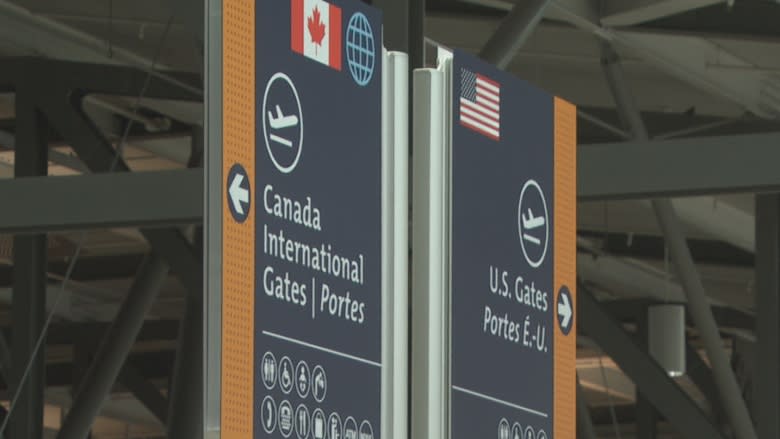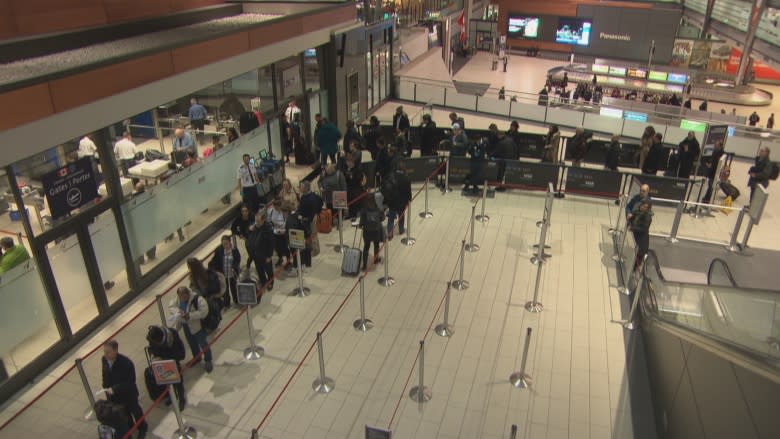Facial recognition tech coming to Ottawa airport worries critics
Experts say the Canada Border Services Agency plan to bring facial recognition technology to the Ottawa International Airport in spring raises questions about the role humans will play in security clearance.
The technology will be used in self-service border clearance kiosks for travellers entering or returning to Canada. The plan will roll out in major Canadian airports this spring, CBC News has learned.
CBSA has declined to provide details, saying they will be revealed in an announcement in coming weeks.
Ian Kerr, Canada research chair in ethics, technology and law at the University of Ottawa, said he has questions about what the real purpose behind the automation is or if it's merely "security theatre."
"This is the idea that if we have what is perceived as the so-called latest technology, that somehow travellers will feel more safe," he told Alistair Steele, guest host of CBC Radio's All in a Day.
"They'll feel more safe if a machine is somehow verifying a person's identity, when in fact humans are very good at looking at a passport, looking at the person in front of them and telling whether that's the same person. Machines are not as good at that," said Kerr.
Kerr also said the kiosks could be outfitted with sensors that function like a lie detector or be programmed with algorithms to assess whether a traveller is a potential risk.
"We have to think really carefully before we implement [technologies like this] because they can ultimately be used for things beyond the purposes that they started being used," Kerr said.
The kiosks are being pitched as part of a broader effort to modernize and streamline clearance procedures at Canadian airports, and will eventually replace the more limited kiosks currently in use.
Human factor
Maj.-Gen (Ret'd) Richard Blanchette said the facial recognition and biometric technology that CBSA is deploying still needs to include a human touch.
"You have to have humans at one point in the system, reading this information, getting to analyze how efficient it is — or not," Blanchette said.
The Nexus kiosks, which use eye-scans among other techniques to speed up security checks for travellers, are a model of how the new technology may be implemented, he said.
'Major concern' for union
Jean-Pierre Fortin, president of the Customs and Immigration Union, said there is a trade-off between reducing the number of border security officers and a drop in security.
"These machines should not be there to replace our officers," Fortin said. "Right now, everything points in the direction that it's only to speed up the amount of traffic and also reduce the amount of officers — by the same token — reducing the security."
Fortin, whose union represents 10,000 frontline customs and border agents, said in-person interviews allow officers to assess a traveller's general comportment and luggage.
"Obviously, we're the first line of defence of the country, so it's very important that we remain with that interaction."



